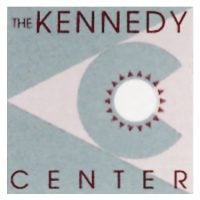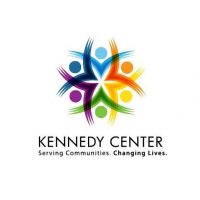Counseling Center of Georgetown
Drug Rehab Center in Georgetown, South Carolina
The Counseling Center of Georgetown in South Carolina is a licensed and accredited facility that offers a range of addiction and mental health treatment services including outpatient counseling, intervention, intensive outpatient programs, residential treatment programs, and medication-assisted treatment.
About This Georgetown, SC Facility
The Counseling Center of Georgetown is an addiction treatment facility located in Georgetown, South Carolina. Founded in 1991, the center has been providing essential services for individuals suffering from substance abuse and drug addiction for nearly three decades. The facility offers an array of treatment options, including aftercare support, drug rehab, intensive outpatient programs, outpatient services, partial-hospitalization programs, and detoxification. They have established a strong reputation in the community for their commitment to helping individuals overcome addiction and regain control over their lives.
Counseling Center of Georgetown provides a range of comprehensive services and treatment methods for addiction and substance abuse. Through their aftercare support, clients receive ongoing care following completed treatments to ensure continued success in overcoming addiction challenges. The facility offers drug rehab programs that provide individuals with a structured environment to detoxify and work on recovery goals. Additionally, they provide intensive outpatient services that combine counseling and therapy sessions along with other supportive activities to assist clients during the recovery process. With their partial-hospitalization programs and various outpatient programs, the center ensures that clients receive customized care plans based on their specific needs. Overall, Counseling Center of Georgetown aims to provide effective and personalized treatment options for individuals seeking help with substance abuse or drug addiction problems.
Genders
Ages
Modality
Additional
Conditions and Issues Treated
Using both legal medications and illegal substances in order to maintain an addiction is substance abuse. Illegal substances can become addictive after a single use. If you are obtaining legal medications illegally, you may be suffering from substance abuse.
Fortunately facilities like Counseling Center of Georgetown in Georgetown, SC are here to help.
Levels of Care Offered
This center offers a variety of custom treatment tailored to individual recovery. Currently available are Aftercare Support, Detox, Drug Rehab, Intensive Outpatient, Outpatient, Partial-Hospitalization, with additional therapies available as listed below.
A detox program helps the person physically withdraw from drugs and helps them track their progress. So, suppose the person isn’t ready for sobriety (or relapses). In that case, the treatment professionals can catch it early and help re-orient them towards recovery.
In order to focus on the psychological aspects of addiction, one must first address the physical symptoms of withdrawal.
Withdrawal symptoms can be painful, even fatal, so managing the detox process carefully is critical. Severe withdrawal symptoms are often treated with more advanced pharmaceutical interventions. Nausea and headaches are common side effects of detoxification.
An intensive outpatient treatment program is set up for those struggling with an addiction to begin the recovery process. Patients come to Georgetown, SC to Counseling Center of Georgetown for therapy, support, programs, and medical supervision. Intensive outpatient treatment is often very tightly scheduled and heavily structured.
Partial Hospitalization Programs (PHP) are meant for individuals experiencing trouble functioning at school or with work and other occupations, medical instability, inadequate support at home, simultaneous mental health issues, and substance use disorders in South Carolina. They are also meant for those experiencing the risk of self-harm or the urge to harm others. It is a short-term treatment program offered at Counseling Center of Georgetown, aiming to improve individuals enough to be reassigned to a lower level of care. The program operates within a psychiatric hospital for several hours daily, usually three to five days per week.
Treatment for substance abuse does not cease after an individual successfully completes a detox or rehabilitation program. A vital follow-up treatment service is aftercare support provided to individuals at Counseling Center of Georgetown in South Carolina after they attain initial sobriety.
Aftercare support often takes the following forms: 12-Step Programs, Outpatient Treatment Programs, and Support Groups. The most effective aftercare programs are tailored to meet an individual’s specific needs and circumstances.
Counseling Center of Georgetown‘s Therapies & Programs
Spousal relationships bear the brunt of alcohol and drug dependence. It becomes critical to submit the relationship to couples therapy to prevent straining it further. Some facilities like Counseling Center of Georgetown in Georgetown, SC offer couples therapy options to manage intimate partnerships amid the recovery process. Other couples-focused treatment plans can provide the patient and their partner tools to get things back to normal.
When family members are more proactive and involved in the treatment procedure, it encourages the patient to advance his or her progress. Moreover, it shouldn’t be ignored that genetics play a role when it comes to addiction, so it’s better to approach the problem as a unit. Also, with proper education, family members can help an individual avoid addiction triggers and guide him or her in making lifestyle changes necessary for his or her sobriety.
It has been said that unhealed trauma is the root of most addictions. Trauma therapy is a way of addressing trauma while in a safe situation in order to heal. Healing past traumas and introducing coping strategies are strong foundations for sustained recovery from addiction. This may involve individual or group counseling or both, in a Georgetown, SC facility. Other forms of therapy have been proven to assist in healing past traumas.
Dialectical Behavior Therapy (DBT) helps those who attend Counseling Center of Georgetown understand how their feelings, beliefs, and thoughts affect their behaviors. DBT is particularly useful for people with self-harming behaviors, as well as those with substance abuse disorders. DBT teaches people how to tolerate distress, regulate their emotions, and how to become mindful.
Cognitive Behavioral Therapy (CBT) is a type of psychotherapy that focuses on the underlying thoughts and behaviors that caused the problem of addiction in the first place and may cause a relapse. Negative feelings are common in substance abuse disorders, and if not recognized, they can cause co-occurring disorders.
CBT involves strategies that help to change the thinking and behavioral pattern by cognitive restructuring. In simple terms, it helps to remove negative thoughts and provides long-term benefits. Also, CBT promotes self-awareness, self-control, and healthy ways to respond to negative thoughts. It can be administered as a mono-therapy as well as a part of combination therapy.
The 12-step program is a part of substance abuse treatment. In this program, peers help each other to achieve the goal of abstinence. It was initially developed by the founders of Alcoholics Anonymous. Due to its huge success, the 12-step program is included as a part of other substance abuse treatments.
The 12 steps guide at an individual level. It begins with the individuals accepting that they are addicts, and they understand its consequences. It is followed by focusing on the recovery process and making amends for hurting others. The program provides the benefit of cognitive restructuring, which refers to the process of change in the negative thoughts that leads to long-term benefits.
Payment Options Accepted
For specific insurance or payment methods please contact us.
Is your insurance accepted?
Ask an expert, call (888) 674-0062
Additional Details
Specifics, location, and helpful extra information.
Georgetown, South Carolina 29440 Phone Number(843) 527-8118 Meta DetailsUpdated November 25, 2023
Staff Verified
Patient Reviews
There are no reviews yet. Be the first one to write one.
Georgetown, South Carolina Addiction Information
More than 610,000 of South Carolina residents, or a staggering 11.9% of the state population, uses illicit drugs and another 230,000 residents abuse alcohol every year. A majority of the illegal drugs used and abused are opioids. Marijuana use and underage drinking occur amongst the young residents of this state–though at a lower rate compared to the national average.
Marijuana is now the most commonly used illicit drug in Georgetown, South Carolina. In 2019, over 61% of drug-related arrests in the city were for marijuana possession. Only 1 in 10 people with a drug addiction receive treatment. The city has been working hard to combat the problem, but it remains a serious concern. Rehab centers in Georgetown offer support and information for those affected by addiction.
Treatment in Nearby Cities
- Cameron, SC (83.6 mi.)
- North Charleston, SC (54.2 mi.)
- Fort Mill, SC (147.9 mi.)
- Holly Hill, SC (65.4 mi.)
- Bennettsville, SC (89.4 mi.)
Centers near Counseling Center of Georgetown
The facility name, logo and brand are the property and registered trademarks of Counseling Center of Georgetown, and are being used for identification and informational purposes only. Use of these names, logos and brands shall not imply endorsement. RehabNow.org is not affiliated with or sponsored by Counseling Center of Georgetown.









